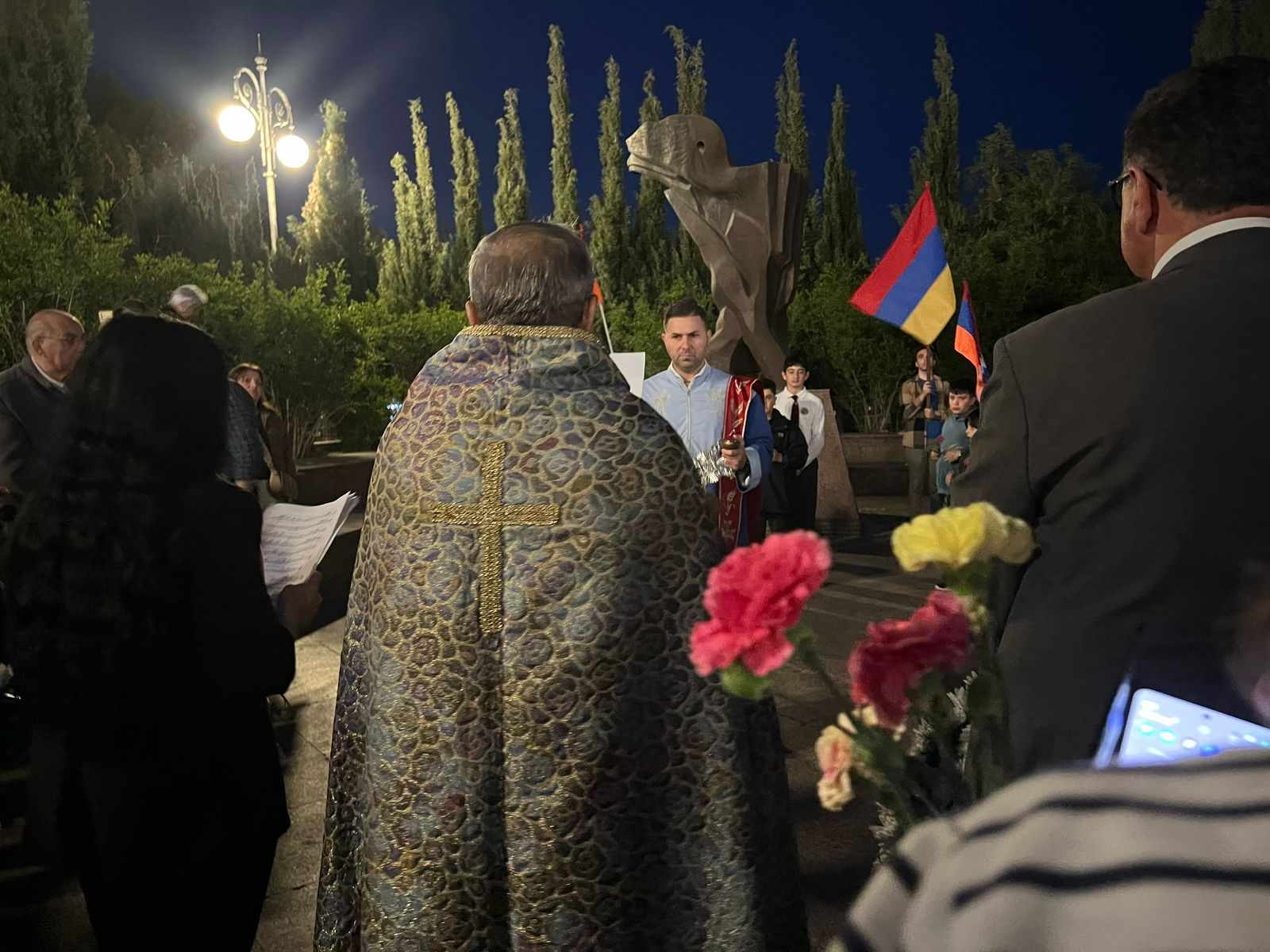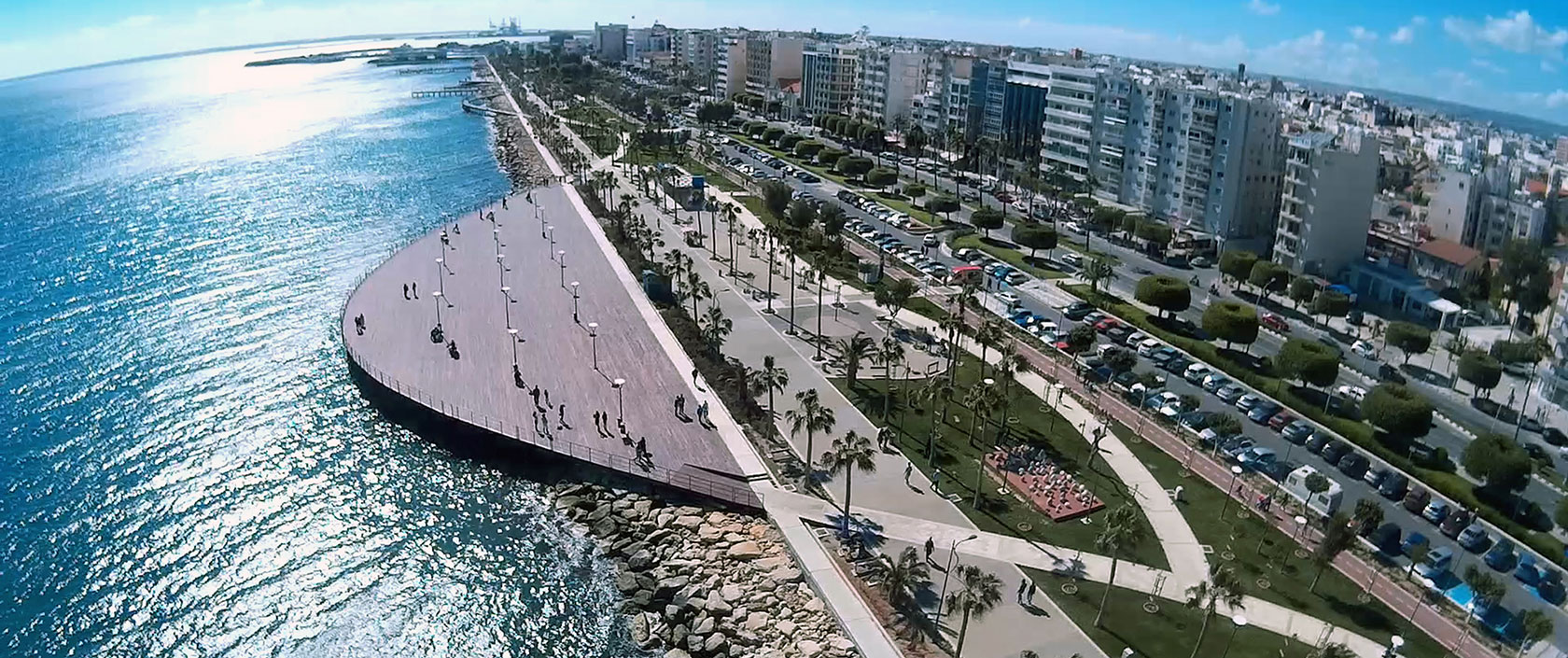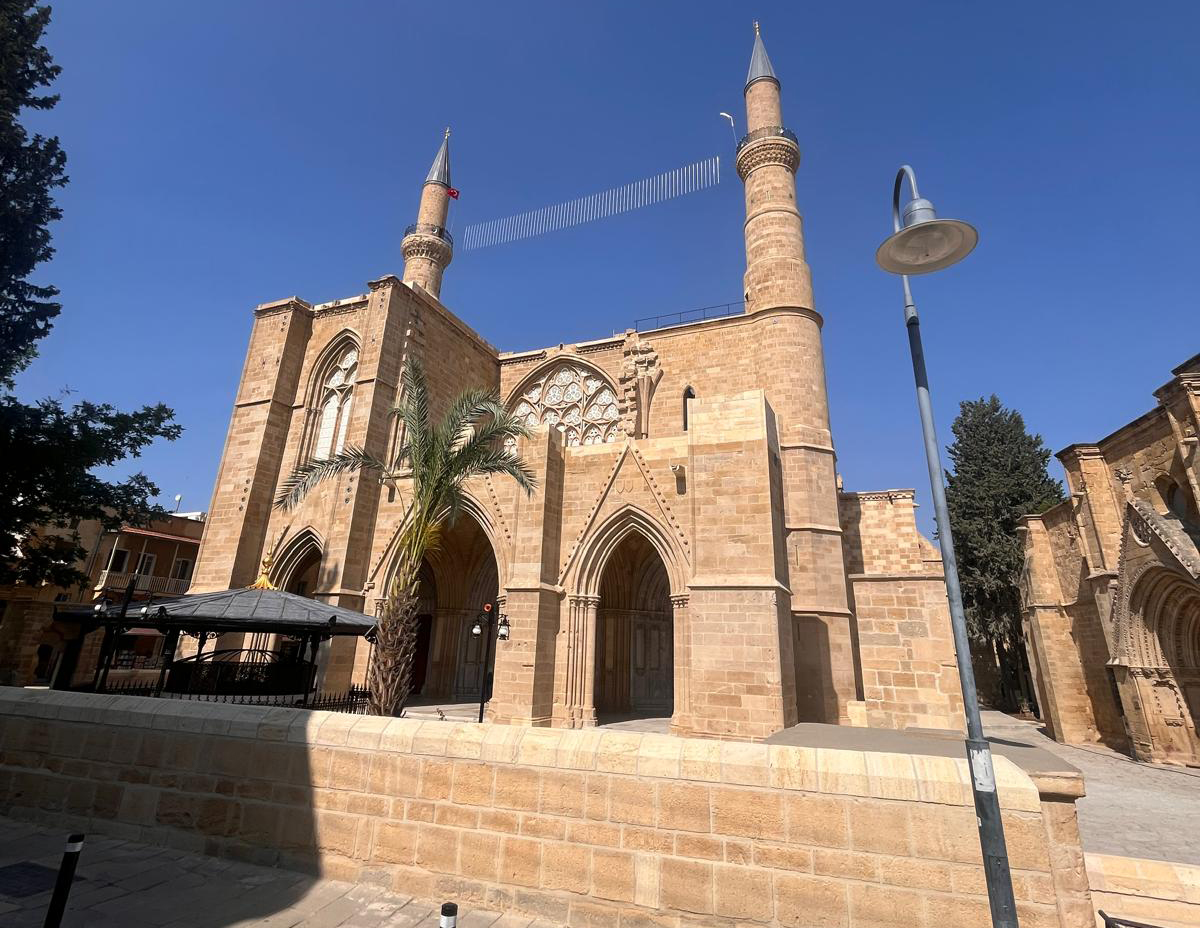110 years since the Armenian genocide, which resulted in the deaths of over 1.5 million Armenians under the Ottoman Empire in 1915, was marked by the Armenian community of Cyprus, in addition to local authorities, on Wednesday evening at the Armenian Genocide Monument in Larnaca.
The ceremony took place at the historic monument situated near Larnaca marine – an emblematic location as the first stop for thousands of Armenian refugees who found refuge on the island between 1915 and 1923.
The monument, a collaboration between Cyprus and Armenia, was initiated by Bedros Kalaydjian and designed by architect Angelos Demetriou. Funded by Cyprus’ education ministry, it features four granite plaques donated by the Armenian government, serving as a lasting symbol of remembrance and resilience.
In 2008, the Kalaydjian Foundation further reinforced this legacy with the creation of the Armenian Genocide Memorial Square. Linking the monument to Larnaca’s seafront promenade, the square, crafted from granite and sandstone, ensures that the memory of the genocide remains an integral part of the city’s landscape.

Addressing attendees, Larnaca district governor Angelos Hadjicharalambous reflected on the enduring ties between Cyprus and Armenia, underscoring the shared experiences of adversity and perseverance.
“Both our nations have suffered grave injustices. As Cyprus continues its quest for justice regarding the ongoing occupation of its territory, we stand in unwavering solidarity with Armenia in its rightful demand for global recognition of the genocide. Justice is the bridge that connects our histories and our futures,” he said.
Larnaca deputy mayor Iasonas Iasonides reiterated the municipality’s support for the Armenian community, which numbers approximately 3,500 across Cyprus.
“The people of Cyprus will forever honour the memory of the victims and will oppose any attempts at historical denial. The Armenian community is an integral part of our society, and we stand beside them in remembrance and truth,” Iasonides said.
“The Armenian Genocide was not solely a tragedy for Armenians – it was a tragedy for all humanity. Recognition is not just about honouring those we lost; it is a vital step in ensuring that such atrocities are never repeated,” younger member of the Armenian community Marie Somakian Georgiou said.
The ceremony concluded with a wreath-laying, moments of silence, and prayers.
On Thursday, Cypriot political parties issued messages commemorating the anniversary, with Disy writing that “April 24 is a day of remembrance and condemnation of such mass crimes as the Armenian genocide, as it is and will remain in world history”.
They added that it was “an inhumane attack on a scale unleashed by the Ottoman regime on the people of Armenia, and which will never be forgotten by anyone”.
“This is required by the recognition of the suffering that this people went through, with the belief that so long as Turkey does not recognise the crimes it has committed, it will be distancing itself from the concept of international law. We must honour historical memory, no matter how much this may bother Turkey.”
The party then added that “we, here in Cyprus, which served as a host country for the persecuted Armenians, know how peace-loving, progressive, and creative the Armenian people are.”
Meanwhile, Dipa leader Marios Garoyian, himself an ethnic Armenian, said that “April 24 is a day of deep reflection and historical responsibility for humanity”.
“We reverently honour the memory of one and a half million Armenian Christians, innocent victims of one of the darkest pages of modern history – the Armenian genocide, with the Ottoman regime and the Young Turks as perpetrators, but also modern Turkey bearing the burden of denial,” he said.
“We bow our heads in respect to the men, women, and children who were exterminated, displaced, tortured, and forced to abandon their ancestral homes.”
Of Cyprus, he said the island has a “high sense of justice and humanity” and pointed out that it was the first country in Europe and the second in the world to officially recognise the Armenian genocide, in 1975.
“Today is also a call to Turkey to respond to the requirements of international law, to abandon the rhetoric of denial and revisionist practices, and to undertake an act of historic courage: the recognition of the Armenian genocide.”
Earlier, Diko member of the European parliament Costas Mavrides met a group of young people of Armenian origin from various European Union member states who are participating in an internship programme in Brussels.
At that meeting, he said the “systematic denial of the genocide, especially by the current Erdogan regime, constitutes a continuation of the original crime and a threat of repetition of serious crimes in the future”.
“The Armenian genocide and similar crimes against humanity should not simply be condemned and taught as historical facts. They should function as moral lessons for the present and even more so, for the future,” he said.







Click here to change your cookie preferences